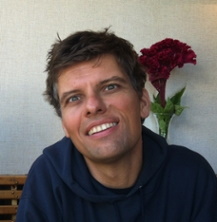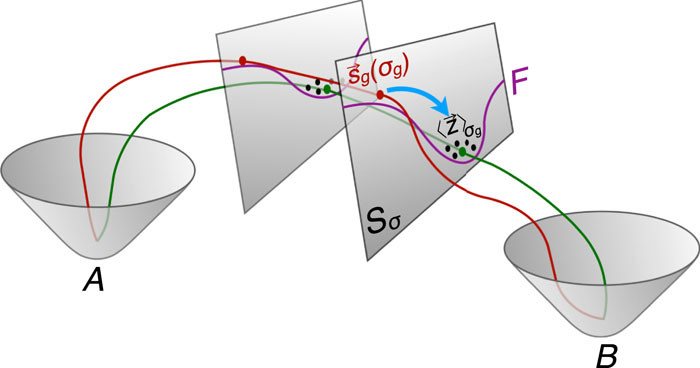The PathCV.cpp source file found in this GitHub repository is the latest stable version of our path collective variable (Path-CV) code. It can be downloaded and then be compiled together with the Plumed program as described below.
Plumed is a software package that can be linked to various molecular simulation programs to carry out enhanced sampling simulations and study activated molecular transitions, such as chemical reactions, phase transitions, protein folding and conformational transitions, and so forth.
By using a Path-CV, complex transitions that are difficult to capture with just a few collective variables can be described and biased along using a biasing method, such as metadynamics, umbrella sampling, constrained MD, ABF, OPES, etc. A Path-CV is an adaptive function of other descriptive collective variables, such as bond distances, angles, coordination numbers and so on, which can be used to approach and describe as good as possible the unknown intrinsic reaction coordinate of a molecular transition, by optimizing the function towards the mean transition path or the minimum free energy path. The computational cost of biasing along the one-dimensional path-CV scales almost trivially with the number of CVs used in the path-CV.
For a Plumed Nest archive with example input files for a path-metadynamics simulation of DNA base-pairing transitions using Plumed and Gromacs click on this link. Further instructions: This allows to run multiple-path-metadynamics on the Watson-Crick-Franklin to Hoogsteen base-pairing transition of an A-T pair in DNA. It requires PLUMED compiled with MPI and with the Path-CV code provided within. It also requires an MD engine that can run parallel replicas. We use GROMACS 2018.8 compiled with MPI. Notice that in the PLUMED input files “WALKERS_ID” must be adjusted for the different walkers. This example is taken from the work published in Ref. [3].
A second Plumed Nest example is found here.
References:
[1] Path finding on high-dimensional free energy landscapes. Grisell Díaz Leines and Bernd Ensing, Phys. Rev. Lett. 109 (2012), 020601 DOI: 10.1103/PhysRevLett.109.020601
[2] Advances in enhanced sampling along adaptive paths of collective variables. Alberto Pérez de Alba Ortíz , Ambuj Tiwari, Rakesh C. Puthenkalathil, and Bernd Ensing, J. Chem. Phys. 149 (2018), 072320 DOI: 10.1063/1.5027392
[3] Sequence dependence of transient Hoogsteen base pairing in DNA. Alberto Pérez de Alba Ortíz, Jocelyne Vreede, and Bernd Ensing, PLOS Computational Biology 18 (2022), e1010113. DOI: 10.1371/journal.pcbi.1010113

